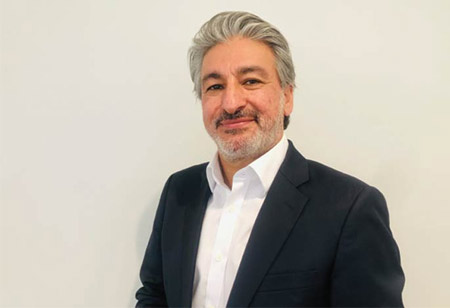Dr. Farrokh Boroomand is a seasoned expert in e-mobility and compliance in the automotive industry, currently serving as the Head of Integrity, Compliance, Policy & Risk Management at Audi México. He has extensive industry experience with a strong foundation in both mechanical and aerospace engineering.
Dr. Boroomand’s ingrained knowledge in product engineering, development and marketing, coupled with a comprehensive understanding of automotive operations and products, strategically positions him to drive innovation and enhance performance in the automotive industry. He has held pivotal international roles in Germany, Russia, and Mexico, successfully navigating complex regulatory environments, including significant contributions to Volkswagen AG’s global operations in Germany and Russia.
With a strong focus on strategic development and upholding ethical standards, Dr. Boroomand is adept at addressing the multifaceted challenges of high-risk environments while advancing innovative e-mobility initiatives.
In an interview with CIOReview Latin America, Dr. Farrokh Boroomand sheds light on the evolving challenges in integrity, compliance, policy and risk management (ICPRM) practices.
What emerging challenges are currently impacting the effectiveness of ICPRM practices and how do you plan to address these challenges at Audi México?
The protection of human and environmental rights is picking up steam. Due to globalization, companies rely on diverse supply chains with varying levels of legal practices and regulations across countries, leading to compliance risks. In 2011, the UN introduced the "Guiding Principles on Business and Human Rights,” to boost standards and improve practices for regulating business and human rights, aiming for socially sustainable globalization. This document outlines the state's duty to protect human rights, companies' responsibility to respect these rights and access to remedy. Since these principles are not legally binding, companies and governments can overlook them.
National regulations will soon enforce ethical AI use, necessitating responsible and transparent AI practices.
At Audi México, we comply with "Lieferkettensorgfaltspflichtengesetz – (LkSG)" The German Supply Chain Due Diligence Act by
• Prohibiting child labor, forced labor and slavery
• Ensuring employee safety and health.
• Respecting freedom of association.
• Ensuring equal treatment and fair wages for all employees.
• Preventing human rights violations by security services.
• Prohibiting illegal land, forest and water evictions.
• Banning harmful soil, water and air pollution, excessive water consumption and the use of mercury.
• Prohibiting the production and use of organic pollutants.
Our supply chain obligations encompass every step, from raw material extraction to product delivery, including our operations and direct and indirect suppliers. Key due diligence obligations in supply chains include establishing a risk management system, conducting regular risk analysis, implementing preventive measures, applying corrective actions if needed, designating responsible persons, setting up a whistleblower system and issuing an internal policy. We implement due diligence obligations by providing input to AUDI AG, which oversees risk management, preventive measures and corrective actions. Our whistleblower system, implemented during the U.S. Monitorship, handles reports of potential human rights violations, including those within Audi and by suppliers, while our human rights policy, issued in March 2024, formalizes our commitment to human rights. This system integrates with Audi AG's risk management processes, ensuring comprehensive oversight and corrective actions.
How do you envision the future of ICPRM practices evolving, and what strategies do you employ to ensure Audi México remains competitive?
Looking ahead, ICPRM will experience significant changes. The European Union's Corporate Sustainability Due Diligence Directive, effective from July 25, 2024, promotes sustainable corporate behavior by requiring companies to address human rights and environmental impacts. Full adherence to the regulation will be required by July 26, 2029, depending on company size and turnover, and we are preparing for these requirements, with obligations beginning in 2027.
National regulations will soon enforce ethical AI use, necessitating responsible and transparent AI practices.
To navigate these changes, Audi México draws on its experience with LkSG. The current Integrity and Compliance program of Volkswagen Group is highly robust. The comprehensive Compliance Management System includes key elements such as I&C Environment, Risk Assessment, Organization, Communication and Training and Monitoring and Improvement. Volkswagen adheres to the "Volkswagen Group Ethical Principles for AI"—respect, safety and transparency—to ensure responsible use of AI. By integrating these strategies, Audi México is well-positioned to address future challenges and maintain its competitive edge.
Can you describe a successful partnership or collaboration that highlights your approach to developing a robust ICPRM program and achieving its objectives?
A prime example of successful collaboration is the Volkswagen Group, which encompasses 16 brands, 114 production facilities and over 680,000 employees across 29 countries, with sales revenue exceeding 322 billion EUR in 2023. This diverse group includes renowned brands like Volkswagen, Audi, Porsche, Bentley and Lamborghini. Although Volkswagen sets global policies, these can be adapted to fit the specific legislation and requirements of the countries where each brand operates. This collaboration allows us to share observations, insights and best practices, which significantly strengthens our integrity and compliance programs.
What essential advice would you give to your peers to ensure that the industry maintains its commitment to both integrity and cutting-edge innovation?
To uphold our industry's promise of integrity and innovation, strong leadership and management commitment are essential. At Audi México, our leadership team, including the CEO, CFO and CHRO, sets high ethical standards, which are particularly important in high-risk environments like Mexico compared to less challenging ones such as Switzerland or Germany.
Creating a culture of integrity requires more than compliance; it demands decisions based on strong ethical principles and transparency. Leaders must model integrity and be transparent in decision-making, even if results are not perfect.
Effective communication and regular training are also crucial. Compliance policies alone are insufficient; we need proactive communication and ongoing training to ensure all team members align with our values and expectations. Focusing on these areas helps us manage challenges and maintain our commitment to integrity and innovation


